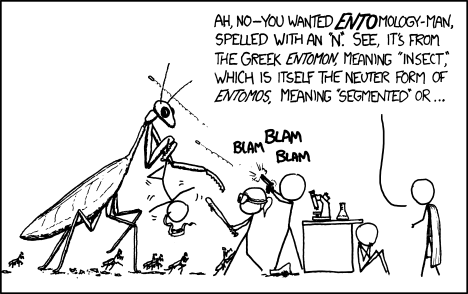John’s a saint.I might be talking about my neighbour, John, who has not been canonised, and be expressing a thought that might be partially glossed thus: John is extremely kind – to the point of self-sacrifice. According to truth-conditional pragmatic theories, when I do this I am predicating of John an ad hoc concept SAINT*, different from the lexicalised concept.
Evidence that this ad hoc concept gets into the proposition expressed comes from negation. Consider replying like this:
No, he’s not a saint. He just does what he would prefer and makes it look like a big sacrifice.The speaker of the reply seems to be denying that John is a helpful etc. individual, not that he is a literal saint. It looks, in other words, as though the negation takes scope over the proposition that John is a SAINT*, and this suggests that the proposition that was expressed by the original claim was that John is a SAINT*.
In the new paper we take all of this for granted and look in some detail at what kind of thing such an ‘ad hoc concept’ is (or would be).
We argue that ad hoc concepts are not really concepts; rather they are clusters of information ready to be used in inference. By cluster, we mean a collection which, in addition to having definite members and non-members, may have some borderline member/non-members, like a cluster of points on a graph. See below for the abstract: the paper is here.
Allott, N. & Textor, M. (2012). Lexical pragmatic adjustment and ad hoc concepts. International Review of Pragmatics, 4(2), 185–208
It’s in a special issue of the International Review of Pragmatics edited by Anton Benz, Katja Jasinskaja and Uli Sauerland. Many thanks to them for putting this together – also for organising the conference that most of the papers were from.
Thanks are also due to CSMN and the Norwegian Research Council for funding my research, and for making possible an extended visit by Mark Textor to Oslo last year for us to write the paper.
--
Lexical pragmatic adjustment and ad hoc concepts
Nicholas Allott and Mark Textor
Abstract
According to truth-conditional pragmatics, a word may contribute an ad hoc concept to the proposition expressed, that is, something that differs from the concept the word encodes (the lexicalized concept). In relevance-theoretic lexical pragmatics, ad hoc concepts are treated like a species of concepts proper. Concepts as well as ad hoc concepts are taken to be atomic. Lexical pragmatic adjustment is conceived as the formation of an ad hoc concept that is narrower or broader in extension (or both) than the lexicalized concept involved. We argue that difference in extension should not be taken as the crucial feature of lexical pragmatics, since ad hoc concepts can have the same extension as the lexicalized concept. In contrast, we propose a positive view of ad hoc concepts as clusters of information poised to be used in inference. (Surprisingly, ad hoc concepts turn out not to be concepts at all.) The cluster account drops the assumption that ad hoc concepts are atomic and can therefore provide a satisfactory explanation of lexical pragmatic adjustment.

